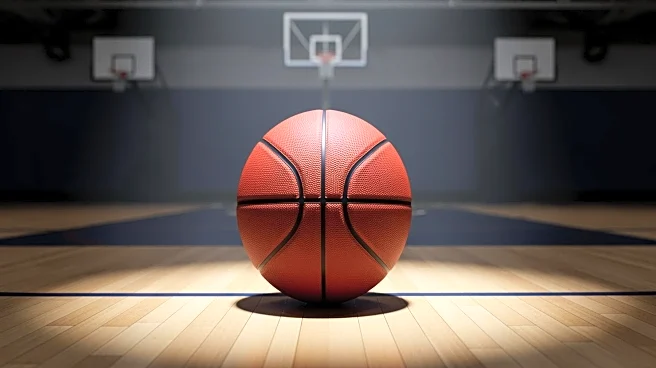What's Happening?
Dior Johnson, once a highly promising basketball recruit, has transferred to Tarleton State University after a winding journey through multiple schools. Johnson's career began in New York, where he excelled
in high school basketball, leading to commitments to several colleges, including Syracuse, Oregon, and Pittsburgh. His time at Pittsburgh was marred by legal issues, leading him to Clarendon College, a junior college in Texas, where he averaged 29.7 points per game. Johnson then moved to UCF, where he played limited minutes before transferring to Tarleton State. His journey reflects the challenges and unpredictability faced by young athletes navigating college sports.
Why It's Important?
Johnson's transfer to Tarleton State highlights the complexities of college athletics, where promising athletes often face hurdles that can impact their careers. His story underscores the pressures and expectations placed on young athletes, as well as the importance of finding the right fit both academically and athletically. For Tarleton State, acquiring a player of Johnson's caliber could boost their basketball program and attract more attention to the school. Johnson's journey also serves as a cautionary tale for other athletes, emphasizing the need for resilience and adaptability in the face of adversity.
What's Next?
Johnson's move to Tarleton State marks a new chapter in his basketball career, with the potential to redefine his trajectory. As he integrates into the team, his performance will be closely watched by scouts and analysts, potentially influencing his future opportunities in professional basketball. Tarleton State will likely leverage Johnson's skills to enhance their competitiveness in upcoming games, including a high-profile match against LSU. Johnson's experience may also inspire discussions on the support systems available to student-athletes, particularly those facing personal and legal challenges.
Beyond the Headlines
Johnson's story raises broader questions about the support and guidance provided to young athletes in navigating their careers. It highlights the need for institutions to offer robust mentorship and counseling to help athletes manage the pressures of college sports and personal challenges. Additionally, Johnson's journey may prompt discussions on the role of college athletics in shaping the futures of young athletes, including the balance between sports and academics.










